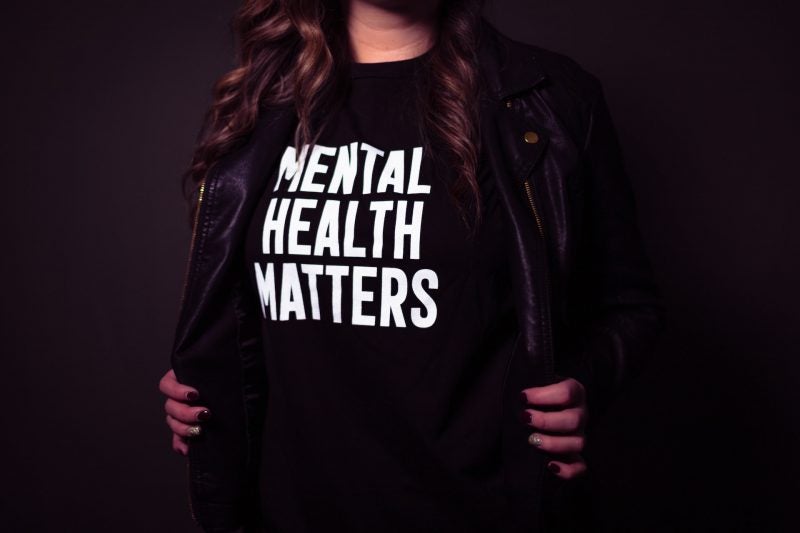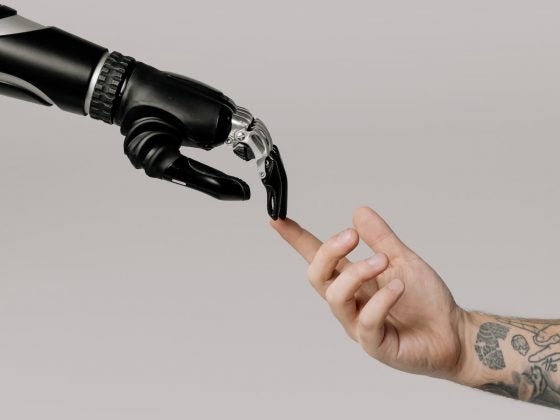When the Ontario government announced an expansion of online mental health supports to help Ontarians navigate the challenges of the pandemic in 2020 – including free access to self-guided, internet-based cognitive behavioural therapy (CBT) programs – an alarm bell sounded in the mind of bioethics researcher Rachel Katz.
Ethics researcher Rachel Katz among leading line-up of speakers at Congress 2023, Canada’s largest humanities and social sciences conference, taking place May 27-June 2
“Self-guided CBT and other AI-based therapies are not a band-aid solution for the current mental health crisis in Canada,” said Katz, noting that there are a number of mental health conditions for which CBT is not the ideal solution and can actually make someone’s mental health condition worse.
“They can be an effective stop-gap measure for some patients while they wait to be seen by a clinician, but they are not the answer for everyone,” she added. “I’m very concerned that governments will start offloading mental healthcare services onto these emerging, low-cost apps instead of working to solve the supply and demand issues we face with mental health practitioners.”
Katz, a University of Toronto PhD candidate studying at the Institute for the History and Philosophy of Science and Technology, and a bioethics trainee at the Centre for Addiction and Mental Health (CAMH) in Ontario , will be sharing her analysis into the ethical and social implications of AI-facilitated psychotherapy as a featured speaker at the upcoming Congress of the Humanities and Social Sciences (Congress 2023), Canada’s largest academic gathering and one of the most comprehensive in the world, taking place May 27 to June 2 at York University in Toronto.
Billed as a leading conference on the critical conversations of our time, Congress 2023 serves as a platform for the unveiling of thousands of research papers and presentations from social sciences and humanities experts worldwide. With more than 9,000 scholars, graduate students and practitioners expected to participate, the event focuses on reckoning with the past and reimagining the future, with the goal of inspiring ideas, dialogue and action that create a more diverse, sustainable, democratic and just society.
For the purposes of her study, Katz is both watching video demonstrations and using the AI tools herself – including interactive apps like Woebot Health and Youper, and self-guided meditation – and then tying her analysis of the technology to existing literature in bioethics and the philosophy of medicine, psychiatry and mental health. Her goal is to produce guidance on the appropriate use of emerging AI-based therapy tools before they become the latest fad, possibly to the detriment of patients.
“I don’t want to deny people choice, but I am worried about the financial incentives on the part of governments to force more and more people to use these apps when it may not be the most appropriate action,” she said. “I fear we’re putting the cart before the horse and favouring the development of this technology without first considering the social and ethical implications of it on our health care system.”
One of the most common critiques of AI-based mental health solutions is that they are goal-oriented and focus on individual productivity. This may sound helpful in the context of using AI to stay on track with a fitness goal or to learn a new language, but when applied to chronic mental health conditions, it can actually worsen the mental health of someone who may be going through periods of extreme highs or lows, she explained.
“Can you imagine your therapy app reminding you it’s time to do your five minutes like the Duolingo owl, when you’re suffering from severe depression or suicidal ideation?,” she said. “I find that to be slightly ominous. The more reading and the more listening I do about DIY mental health care, the more I think in 50 years’ time we’re going to look back at this and say, ‘That was a weird phase in mental health research.’”
At the outset of her research, Katz was very skeptical of the technology and assumed she would find no appropriate use for it. After speaking to UofT undergraduate students last fall, however, she realized there may be benefit under certain circumstances.
“The students shared that they were not always comfortable expressing themselves verbally and that having the chance to do a practice run with a non-judgmental chatbot helped them to be more open about their mental health struggles,” she said. “As we move forward with these technologies, I now believe we need to balance personal freedom with clinical expertise.”
 Though her research is still in its early stages, Katz has distilled that the outsourcing issue is the most pressing one and she’s now on a mission to raise awareness about the need for policy development around use of AI-facilitated psychotherapy before it becomes mainstream.
Though her research is still in its early stages, Katz has distilled that the outsourcing issue is the most pressing one and she’s now on a mission to raise awareness about the need for policy development around use of AI-facilitated psychotherapy before it becomes mainstream.
“People often characterize ethics as spoiling everyone’s fun, but I think in order to have strong technology development, you need to have a strong ethics presence in tandem with that development,” she said. “I’m still very concerned that we will see insurance benefit plans no longer covering human therapists and providing a premium subscription to a therapy app instead. These apps may be an answer, but they are not the answer.”
Organized by the Federation for the Humanities and Social Sciences in partnership with York University, Congress 2023 is sponsored by the Social Sciences and Humanities Research Council of Canada, Universities Canada, the Canada Foundation for Innovation, Mitacs, SAGE Publishing, and University Affairs.
Registration – which includes 200+ keynote and open Congress sessions, with a virtual attendance option for many presentations – is $55. Visit www.federationhss.ca/congress2023 to register for a community pass and access the program of events open to the public.




















